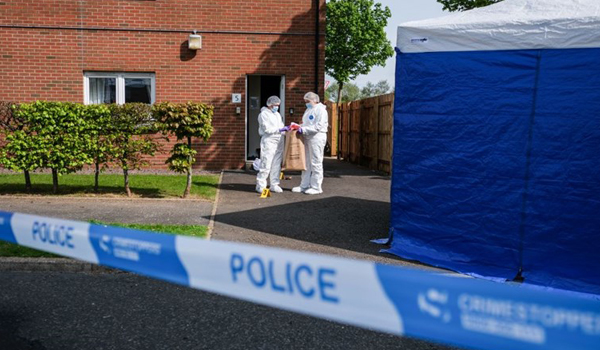Four in five CSIs say mental health is harmed by work, Unison finds
Police service forensic teams are suffering severe damage to their mental health due to frequent exposure to traumatic scenes as they attend incidents, says Unison.
Research by the union has revealed 84 per cent of crime scene investigation staff report an impact on their mental health as a result of their work.
The workers routinely deal with the aftermath of harrowing ordeals, including deaths, scenes of violent or sexual crime, and helping victims and bereaved families.
Unison’s research – based on a survey of crime scene investigators (CSIs) – shows the heavy toll this is taking on staff crucial to a successful criminal justice system.
More than a third (36 per cent) of CSIs say their mental health is ‘seriously’ or ‘very negatively’ affected by the job.
Around one in six (18 per cent) have received a medical diagnosis for a mental health issue or trauma-related condition, raising concerns many more are struggling without proper support, the union says.
Stress levels and workloads are soaring, with nearly four in five (78 per cent) reporting increased workplace pressures over the 12 months preceding the survey. Yet three-quarters of staff say their employer’s expectations have increased.
That comes as more than half (56 per cent) report their department has cut staff over the past year, Unison says.
CSIs also told Unison there is a lack of management support and a culture of dismissing stress as ‘part of the job’.
Delays in accessing services, lack of confidentiality and limited trauma-specific help mean many investigators say they do not receive the support they expect.
Three in ten (30 per cent) say they have never been offered access to a core police service support package, while one third have taken time off because of ill-health linked to their job.
One CSI said: “I’m currently off sick with work-related stress and PTSD symptoms. I’ve been telling managers about the issues we are facing for months, but nothing has been done. Now that I’m off work, I feel completely forgotten about.
“The occupational health team has been terrible at communicating. The atmosphere at work before I went off was toxic. Welfare support is not good enough.”
Results of the survey – conducted among more than 200 CSIs in England, Scotland and Wales – were released on Thursday (October 9) to coincide with Unison’s annual National Police, Probation and CAFCASS Service Group Conference, which opens in Brighton today.
Unison is urging the police service and individual forces to guarantee CSIs should be allowed at least one paid shift to recover following attendance at a traumatic scene.
Central government investment is also needed to tackle chronic understaffing, and to protect the wellbeing of workers essential to a functioning justice system, the union adds.
The majority of police CSIs are staff rather than officers. Unison says police staff make up nearly 40 per cent of the police workforce in England and Wales.
Unison general secretary Christina McAnea said: “CSIs are paying a terrible price for their dedication to public safety and criminal justice.
“They deal with the aftermath of incidents that nobody wants to see. Regular trauma is seriously damaging their mental health, yet too often their suffering is overlooked, ignored or dismissed. That is unacceptable.
“Forces must face up to the reality of what their staff experience. Support must be automatic, confidential and properly resourced. Nobody should be left to cope alone.
“Police budget deficits make the situation worse. Short staffing and relentless workloads drive stress through the roof. Promises of support mean little when staff are run ragged and endure long waits for therapy.
“Investment in staff wellbeing, and wider police services, is essential if justice for victims is to be delivered.”
Unison’s research is based on a health and wellbeing survey of 245 police CSIs at forces in England, Scotland and Wales, between April 23 and May 16, 2025.


